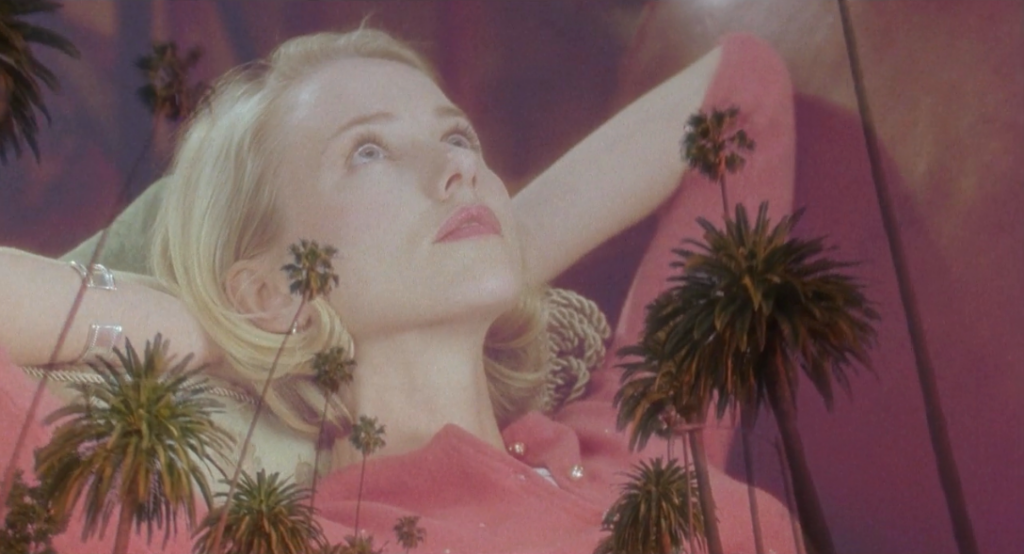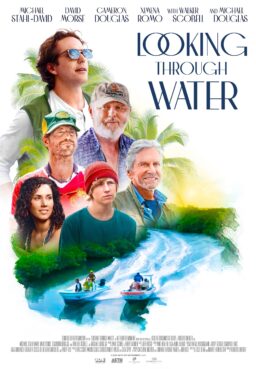1.
“Muted Golden Sunshine: David Lynch’s Los Angeles“: Michael Nordine’s excellent essay for the Los Angeles Review of Books: The Magazine.
“In between the release of ‘Mulholland Drive’ and ‘Inland Empire,’ Lynch began a different venture: daily weather reports. Originally an exclusive feature of his website dating back to at least May 2005, the reports were also featured on their own YouTube channel under the acronymic username of DLDWR until June 2010. Visiting that page now returns the message ‘This channel does not exist.’ The section of his website where it used to be found, www.davidlynch.com/dailyreport, is similarly dormant. Back when they were still ongoing, a typical report began with Lynch looking into the camera and saying, ‘Good morning. It’s March 12, 2009, and it’s a Thursday.’ He then looks up toward either a window or skylight and adds, ‘Here in L.A., mostly blue skies, some white clouds floating by, muted golden sunshine, very still. 52 degrees Fahrenheit, 11 Celsius.’ Some three years earlier, he recorded a nearly identical one: ‘Good morning. It’s April 17, 2006, and it’s a Monday. Here in L.A., beautiful blue skies, some puffy white clouds, golden sunshine, a slight breeze. 55 degrees Fahrenheit, 11 Celsius.’ Whether this daily ritual was ironic or completely sincere remains unknown; few areas of the world have such consistent weather as Los Angeles, which would appear to render the whole exercise moot from a meteorological perspective. Lynch once tweeted that ’60 hours between 9AM and 6PM would be great,’ so perhaps these reports had more to do with taking a moment to reflect, so to speak, than with a commitment to accurate forecasts.”
2.

“It’s not just Bill Maher: Islamophobia on cable news is out of control“: A report from Vox‘s Max Fisher.
“At the center of this has been Bill Maher, a comedian and HBO talk show host who is well-known for his Islamophobic views. Maher said last week that ‘vast numbers of Muslims want humans to die for holding a different idea’ and share ‘too much in common with ISIS.’ This is all part of his ongoing argument conflating the tiny number of violent extremists with the 1.6 billion worldwide Muslims who largely abhor those extremists. Over the weekend, when Maher called Islam ‘the only religion that acts like the mafia, that will fucking kill you if you say the wrong thing’ (another guest on the panel, author Sam Harris, called Islam ‘the motherload of bad ideas’), it was left to guest Ben Affleck to call these opinion ‘gross’ and ‘racist.’ There were, of course, no Muslims on the panel who might have the chance to speak up. While Maher might be the loudest and most candid in his bigotry toward Muslims, there is a subtler, more pervasive, and far more dangerous Islamophobia that has crept into mainstream news coverage. This is the Islamophobia that presents itself as a critical and candid study of Islamist extremism, but in the process does just what Maher does: conflates extremists with the vast, un-extreme majority, perpetuating the assumption that extremism is the default, that Muslims share inherent traits that make them worse than the rest of us, and that they are guilty of extremism until proven innocent.”
3.

“U2: ‘It’s the job of art to be divisive’“: The Guardian‘s Dorian Lynskey conducts an in-depth interview with the popular yet polarizing band.
“Bono is one of precious few celebrities (think George Clooney, Jack Nicholson, Jay Z) who visibly enjoys fame. We have come to regard fame as a dangerous, unnatural condition that exacts a terrible price. Bands lose their moorings and drift apart. Stars feel besieged and armour-plate themselves. But I think Bono actually finds fame liberating and he’s confident enough (his religious faith helps) to remain excitable and exposed. One reason many people find him annoying is that he doesn’t suffer for his success. Perhaps those people would dislike Bono in person, too, but I’m not sure. He’s a tireless raconteur with a big, throaty laugh, fond of anecdotes, jokes, digressions, impressions (his Paul McCartney is spot-on) and catchy, if sometimes glib, aphorisms. He has the thirsty, impatient intellect of an autodidact. He seems to find everything, whether it’s the birth of cubism, the reforms of Pope Francis or maternity leave in Germany, equally stimulating. ‘I have many lives,’ he says. It’s not surprising when he asks his assistant to pick his main course for him. He’s not good at narrowing his options.”
4.

“Journalism startup Latterly doesn’t care about page views one bit“: Venture Beat‘s Jordan Novet reports on a new site banking on the quality of their output to keep its business afloat.
“Based in Bangkok, Thailand, Latterly will publish four new elaborate works of narrative journalism — with characters, plot, conflict, resolution, and all — on its website every month. The startup will charge readers $3 per month or $8 for a three-month subscription. Aside from subscriptions, Latterly will have financial support from donors. But the list of obvious revenue sources ends there. There will be no ads — a quirk one sees occasionally with fledgling journalism startups these days. What’s more, the startup will apparently not care one drop about what takes off among readers and what doesn’t. ‘Most importantly, we don’t care about clicks. We won’t monitor our traffic,’ Latterly declares on its website. That’s a radical perspective in this page-view-centric journalism era, as websites clamor for attention with clickbait headlines, constant social-media promotion, and other gimmicks. Even newspapers like the Oregonian in Portland, Ore., have pushed reporters to focus on metrics like story count.”
5.

“Here’s Why Social Impact is More Important for Documentaries Than Ever Before“: Indiewire‘s Rachel Bernstein interviews “the team of impact strategists behind critically acclaimed films ‘Rich Hill,’ ‘American Promise’ and more.”
“Is there ever a concern that measuring impact will prevent certain types of projects from being made? ‘Yes, it’s a concern and it’s a reality. Where money is for documentary film is in creating social issue documentaries. To a certain extent, whether it’s from outside sources or internally, that definitely affects the way some filmmakers go into looking at a film project in terms of what is that impact as opposed to going in and finding a great story and building that through their artistic lens and creating a powerful story that hopefully can create that impact. At Picture Motion all of us are drawn to projects where the filmmaker is an artist and the film has an artistic element to it and it is a story being told. Our job is to create the campaign. It’s not necessarily the filmmaker’s job. It doesn’t mean it can’t be the filmmaker’s job, but I don’t think it should be their first priority.’ – Darcy Heusel, Senior Director of Strategy, Picture Motion”
Image of the Day

An array of stunning imagery posted at artFido under the title, “Paintings That Will Make You Question Everything Wrong in This World.”
Video of the Day
Today’s national holiday is the topic of this priceless segment from “Last Week Tonight with John Oliver.”












